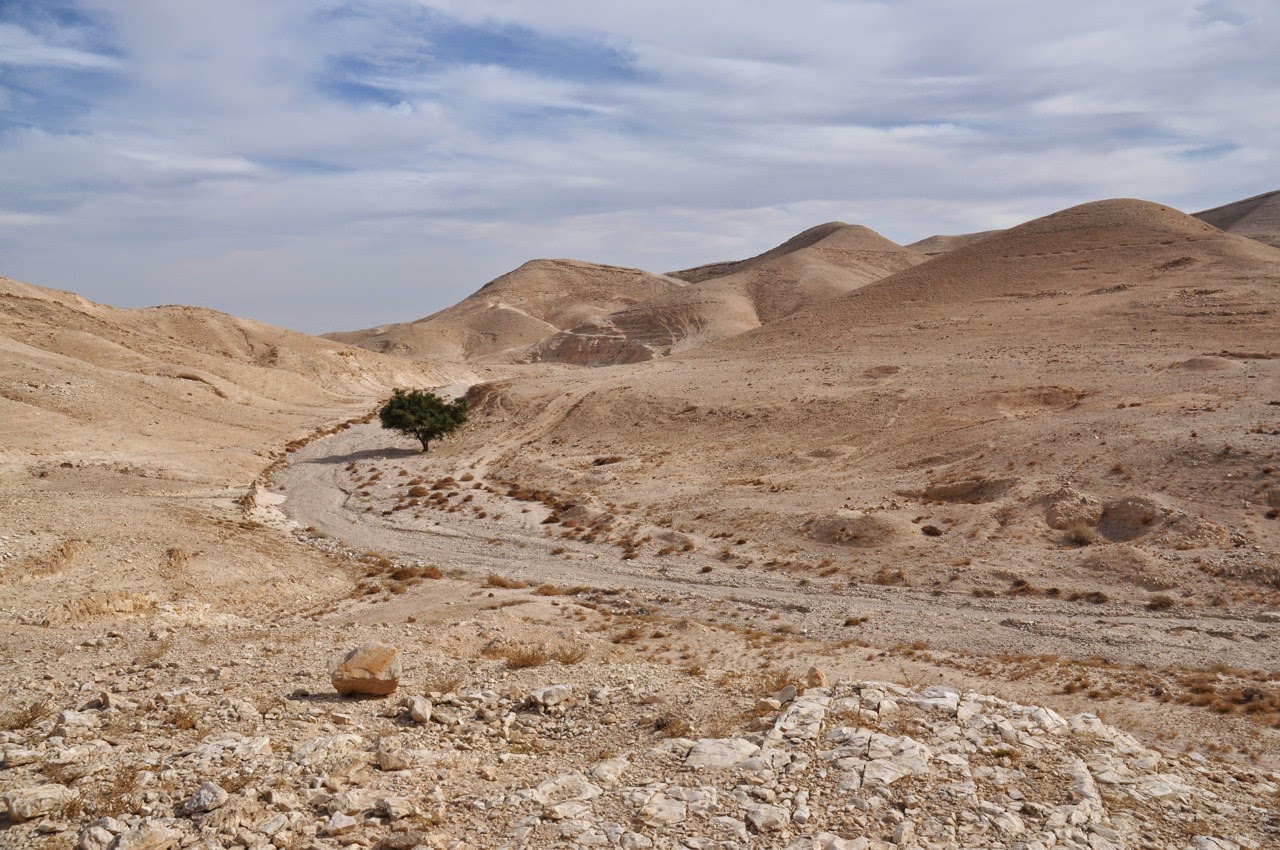Psalm 23:1-2
“The Lord is my shepherd, I lack nothing.
He makes me lie down in green pastures; he leads me beside
quiet waters,
He refreshes my soul.”
I’m sure you, like me, have heard these verses many, many
times. I know that whenever I read this passage in the past, I pictured the
fluffiest, greenest fields imaginable, something like the rolling hills of
Ireland or a nicely-groomed lawn in the late spring...
However, I just learned
something very interesting about the actual green pastures in Israel, the ones
that inspired David to write this Psalm. They actually looked like this...
Because about half of Israel is made up of a wilderness region called the Negev,
it’s very, very unlikely that David ever laid eyes on a nicely-groomed lawn or
a rolling Irish hill. In fact, the shepherds in Israel are constantly on the
search to find enough grass for their little sheep to eat. The sheep aren’t
swimming in luscious grass all the time as some of us may have previously
pictured; they only have just enough for the moment as they are eating. But,
all the same, the sheep are never concerned that they’ll starve, even when the
land around them may seem barren and lifeless. They “know” (as well as sheep
can know) that their shepherd will find them more grass when it’s time to eat
again.
I think that this imagery of the “green pastures” in Israel
is much more realistic to our own lives. After all, we aren’t surrounded by a
luscious green field, always filled with everything we’ll need for life. This
is why we need to trust our Shepherd to lead us to what we need, every moment.
I know that this may be a hard concept for some of us to swallow, especially
those of us who may be thinking about colleges and future plans. Our natural
inclination is to try and find tomorrow’s grass today. We want to go forward
and form an “eating plan” for ourselves. This can be very dangerous. Let me go
back to the Negev to explain why.
Let’s say one of the sheep gets worried that the shepherd
won’t lead him to more food when he needs it. He looks around and sees that he
and the rest of the flock have just finished off the grass in an area, and now
he’s REALLY worried. So, he decides to wander off and find some more food on
his own. But, since Israel is a desert, Mr. Sheep runs into an instant problem
within half an hour of his excursion; he gets thirsty. The only places to find
water in the Negev are in small canals called Wadis. Here's a picture so you can visualize a Wadi...
Mr. Sheep sees a nice
little pool of water in the Wadi and he steps down into the canal to get a long
drink. But, unbeknownst to Mr. Sheep, the Wadis in Israel are prone to flash
flooding; if a heavy rain comes through some of the mountains surrounding the
open fields, water will quickly run down and fill the Wadis within a matter of
minutes. So, if Mr. Sheep happens to be inside a Wadi, getting a nice long
drink when the flash flood happens, he has a very likely chance of drowning.
However, staying with the shepherd completely prevents this
calamity from occurring. By sticking with the rest of the flock and allowing
the shepherd to lead them all to water, Mr. Sheep won’t have a chance of
drowning. The shepherd himself has something that none of the sheep have; he
has FORESIGHT. He realizes that the Wadis can fill up with water and he watches
the weather carefully so he can be sure to move his sheep out of the canal and
back onto solid land before the flash floods come.
I think this is why verse 2 of Psalm 23 talks about “quiet
waters”. I looked up the definition of quiet in the dictionary and it means,
“without much activity, disturbance, or excitement”. I think it’s cool how well that relates to the concept of the
Wadis. It can remind us that our own Shepherd has foresight that we could never
have. By trusting in Him to provide for our needs in every moment, we are
keeping ourselves from the danger that comes with trying to live all on our
own.
“Beware the Wadis;
Don’t look for tomorrow’s grass today because the Shepherd takes
care of you in every moment.”
King David said it well, when he wrote Psalm 23, didn’t he?



